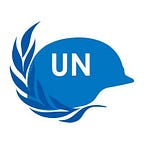UN’s Radio Okapi sets gender equality standards for media in DR Congo
By Jamila Seftaoui
Women are rarely given centre stage in the political arena of the Democratic Republic of the Congo (DRC). Gender specialists within the country’s UN peacekeeping mission (MONUSCO) calculated that women typically receive less than 10% of all air time. In an attempt to carve out a space for women’s equal political participation, MONUSCO’s gender affairs team launched an initiative with Radio Okapi that brought Congolese women into the studio and on the air throughout the 2018 national elections. Through this concerted effort, participation of women in two of its most important political programmes increased to more than 50% and reached an astonishing 93% in another of the station’s weekly broadcasts. Listeners were thrilled.
Allowing women to vote and run for office is not nearly enough to satisfy the call for their political empowerment. In the DRC, women’s voices needed to be given space in the press and in public forums for their messages to reach voters. With this goal of broadcasting women’s opinions about politics and the elections, Radio Okapi hosted several women in debates where usually only men participate and to some others which were women-only panels allowing participating women an opportunity to be heard at a critical time in their country’s history. At the height of the 2018 electoral campaign, Radio Okapi featured in their radio programmes opinions of women from different sections of Congolese society and political affiliations, including electoral candidates and prominent figures of civil society. With this successful initiative, the station set new standards for gender equality in media.
“Radio Okapi broadcasts gave me the opportunity to not only make myself known but also present my ideas and thoughts in political programmes”, states Solange Nyenyezi, a politician and member of Alliance des Forces Démocratiques du Congo (AFDC) who was elected to the National Council in December. “The visibility achieved through Radio Okapi broadcasts has paid”, she added.
Since it first went on air in 2002, Radio Okapi has been an important channel to promote social, economic and political awareness. One of the top radio stations in the country, Radio Okapi can now boast to have tipped the scales and helped women politicians like Solange reach their target audiences, the electorate.
As in many conflict and post-conflict settings, women’s political participation in the DRC is weak. In the 2018 legislative elections, women constituted only 12% of candidates and only one of the 21 presidential candidates. “Reaching out to women candidates through social networks and personalized phone calls was essential to inform them about the opportunities offered by Radio Okapi and explain the benefits of using radio as a platform for their political campaign”, said Charlotte Ngungi Biala, a Congolese journalist and a gender officer who prepared women candidates to Radio Okapi panels.
An important element of the station’s approach involved providing a non-threatening and non-discriminatory environment for women politicians to address the public and share their political views to showcase their political platform. To achieve this, training sessions were conducted to sensitize journalists on gender issues including discrimination and bias faced by women politicians when addressing the media.
A wide range of topics were discussed throughout these broadcasts. Whether discussing economic development, public health, the economy, micro financing, agriculture or taxation, the approach emphasized the importance of maintaining gender balance as a principle of good journalism and stressed the right of women politicians to be heard on an equal footing to their male counterparts.
We are glad that our efforts have inspired other radio stations in the DRC, such as Top Congo, to include women-only panels in their programmes. We are certain that giving women a greater share of air time will have a positive impact on women’s participation in the political affairs of their community. It would be extraordinary to see similar initiatives replicated in radio stations around the world, especially radio stations managed by the other UN peacekeeping missions.
Women’s participation in political decision-making is both a prerequisite for an effective, responsive and accountable democracy, and a means for increasing credibility and legitimacy of democratic institutions. Women’s participation in political processes that affect them, their families, and their societies is a fundamental right that needs to be championed by all.
The author is Senior Gender Adviser and Chief of Gender Affairs in the United Nations Organization Stabilization Mission in the Democratic Republic of the Congo (MONUSCO).
